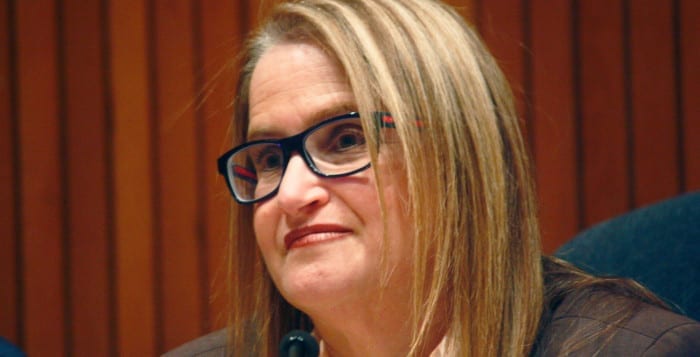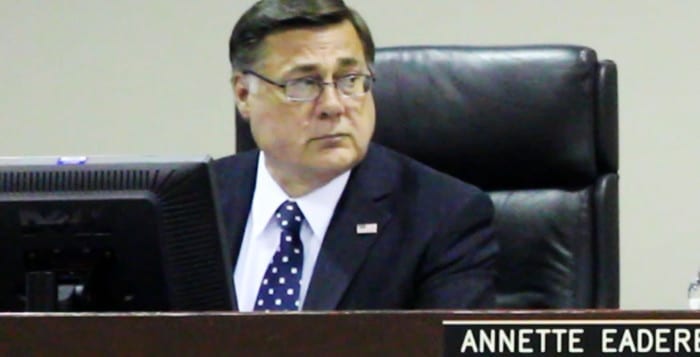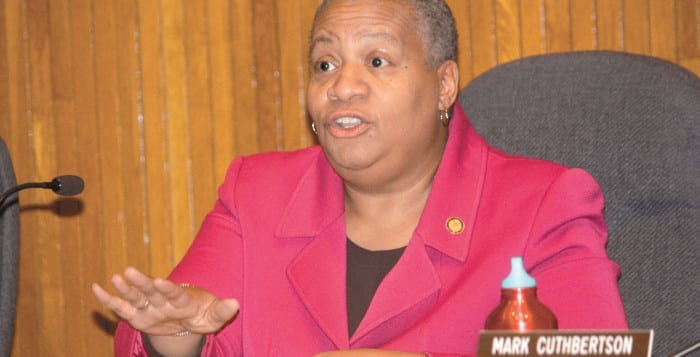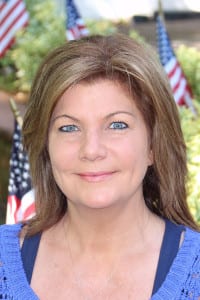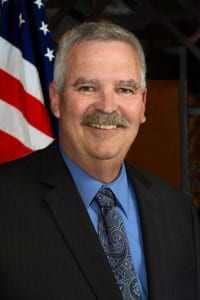Residents of Eaton’s Neck are still divided on how to deal with what they say is an overpopulation of deer in their community, and it looks like the Huntington Town Board hasn’t come to a decision on the matter either.
The board held a public hearing last month to consider allowing longbow hunting during hunting season on private proprieties on Eaton’s Neck and in unincorporated areas of Asharoken to anyone who has a hunting license issued by the New York State Department of Environmental Conservation. It brought out those in support of the proposal and some against the idea. In interviews this week, board members said they have not currently made up their minds on how to proceed with the issue.
Residents expressed concerns about the deer population at the July 14 board meeting.
“Our major concern is safety — traveling our roads at night is hazardous,” Ken Kraska, a resident of Eaton’s Neck said at the meeting then.
After that meeting, the board hosted a public hearing about the longbow hunting proposal, where nearly 30 people took to the podium to speak about the issue. While some residents were very supportive of bow hunting to reduce the population, others felt it was an inhumane way to deal with the issue.
Some are still divided on this idea.
Doug Whitcomb, an Eaton’s Neck resident and member of the Eaton Harbors Corporation board, said in a phone interview this week that he supports longbow hunting. He spoke at the public hearing last month on the issue.
“We are overrun with deer,” Whitcomb said. “They no longer run from you. I was personally challenged by one yesterday, and not even my 150-pound Great Dane scared the deer.”
Whitcomb said that many of his neighbors now have Lyme disease, and he doesn’t want to wait until a member of his family contracts it before something is done.
“We want the same quality of life as every other resident, and we’re being denied that,” he said.
According to the DEC, which manages the state’s deer hunting, the Long Island deer population has been steadily increasing since the 1980s. The DEC considers hunting, or culling deer, is the most cost-effective and efficient way to stabilize or reduce deer populations, while also alleviating associated damages to private property and natural resources.
Christine Ballow, an Eaton’s Neck resident, said she supports more humane ways to handle this issue. She said she didn’t feel longbow hunting was 100 percent effective.
“I’m hoping this doesn’t go through,” Ballow said in a phone interview.
Wendy Chamberlin, president of the Wildlife Preservation Coalition of Eastern Long Island, also shares the belief that bow hunting is a cruel and ineffective option.
“For sentient animals, that have thoughts and feelings, it is particularly cruel … it is a long, drawn-out, agonizing death,” she said in a previous interview.
Ballow supports hormonal sterilization of the male deer. “It’s a peaceful solution,” she said.
Joe DeRosa, an Eaton’s Neck resident, spoke at both board meetings, and is expecting a decision from the Town Board at the Sept. 16 meeting.
DeRosa is president of the Eaton Harbors Corporation, which conducted a survey of Eaton’s Neck residents. He said 85 percent of residents were found supporting some type of hunting to reduce deer numbers.
“The problem is getting worse by the day,” DeRosa said. “And we are running out of time. Hunting season starts soon. Our hope is that [the board] approves this idea.”
Suffolk County hunting season begins on Oct. 1 and ends on Jan. 31.
Town Board members this week either said they had no comment on the issue or that they had not come to a decision on the matter.
Town Supervisor Frank Petrone said he is “still weighing the testimony from the public hearing and the input from the public that has come in and may still come in before the board meeting,” according to an email from town spokesperson A.J. Carter.



